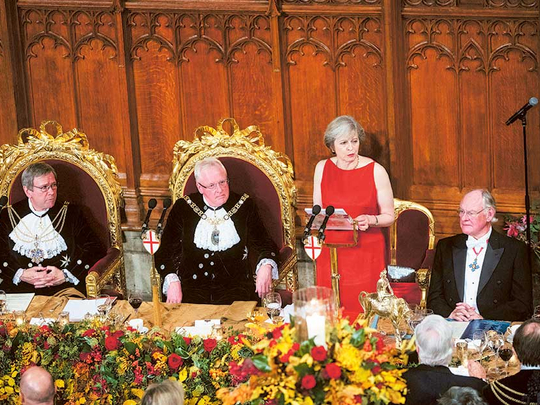
LONDON: A European plan under which Britons will face a £10 charge to travel to the EU after Brexit is to be discussed by interior ministers this week.
The plan for a European version of the US visa waiver programme has already won the backing of the British diplomat now in charge of European security.
Sir Julian King, the European commissioner for the security union, was to give evidence to peers on Tuesday. He has described the plan as “a valuable additional piece of the jigsaw” in the war against international terrorism.
In his first British interview since taking up the post in September, King said the proposals for a pre-clearance entry system for those travelling from outside the EU will be presented this week.
“We think this is going to be a valuable additional piece of the jigsaw because it will allow us to know more about the people who are planning to come to the EU in advance so that if necessary they raise questions about either security or in some cases migration. We’ll be able to intervene even before they arrive in some cases,” he told the Press Association.
The EU commission proposals could mean that after Brexit, British and other non-European citizens will have to apply online and pay to travel if they are heading for the 26 European countries that make up the Schengen zone.
Currently, British passport holders can travel throughout EU member states without having to apply for short-term visas, but Britain’s vote to leave the EU has raised questions over the criteria that will be needed for UK citizens to visit the Schengen area.
The move is part of a wider package of counter-terrorism moves that are being tabled one year on from the Paris attacks.
“It’s that level of present, persistent, indiscriminate threat that led to 80-plus per cent of European citizens saying they want more action in this area,” said King. “There are a number of elements at the heart of this task — tackling terrorism is one but not the only part of it. There’s work that needs to be done on cybercrime and attacks, and serious and organised crime. On terrorism, there were a number of things already in hand.”
EU interior ministers, including the British home secretary, Amber Rudd, will consider the European visa waiver scheme alongside the refreshed counter-terrorism package this Friday at a regular meeting of justice and home affairs ministers.
The refreshed EU counter-terrorism strategy includes criminalising travel between Europe and Syria or Iraq, making it more difficult to get hold of deactivated firearms and stepping up pressure on internet companies to remove extremist material from the web.












